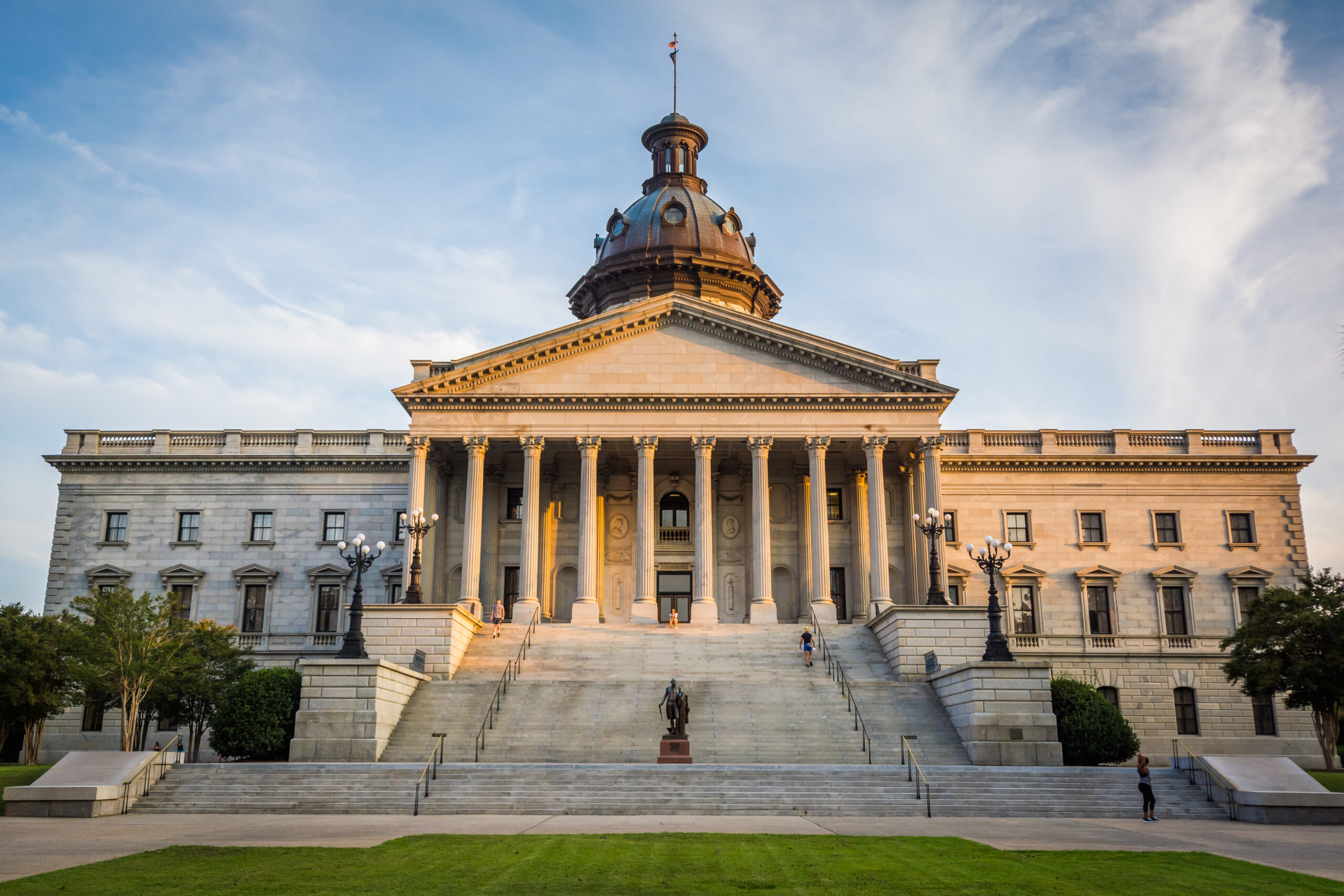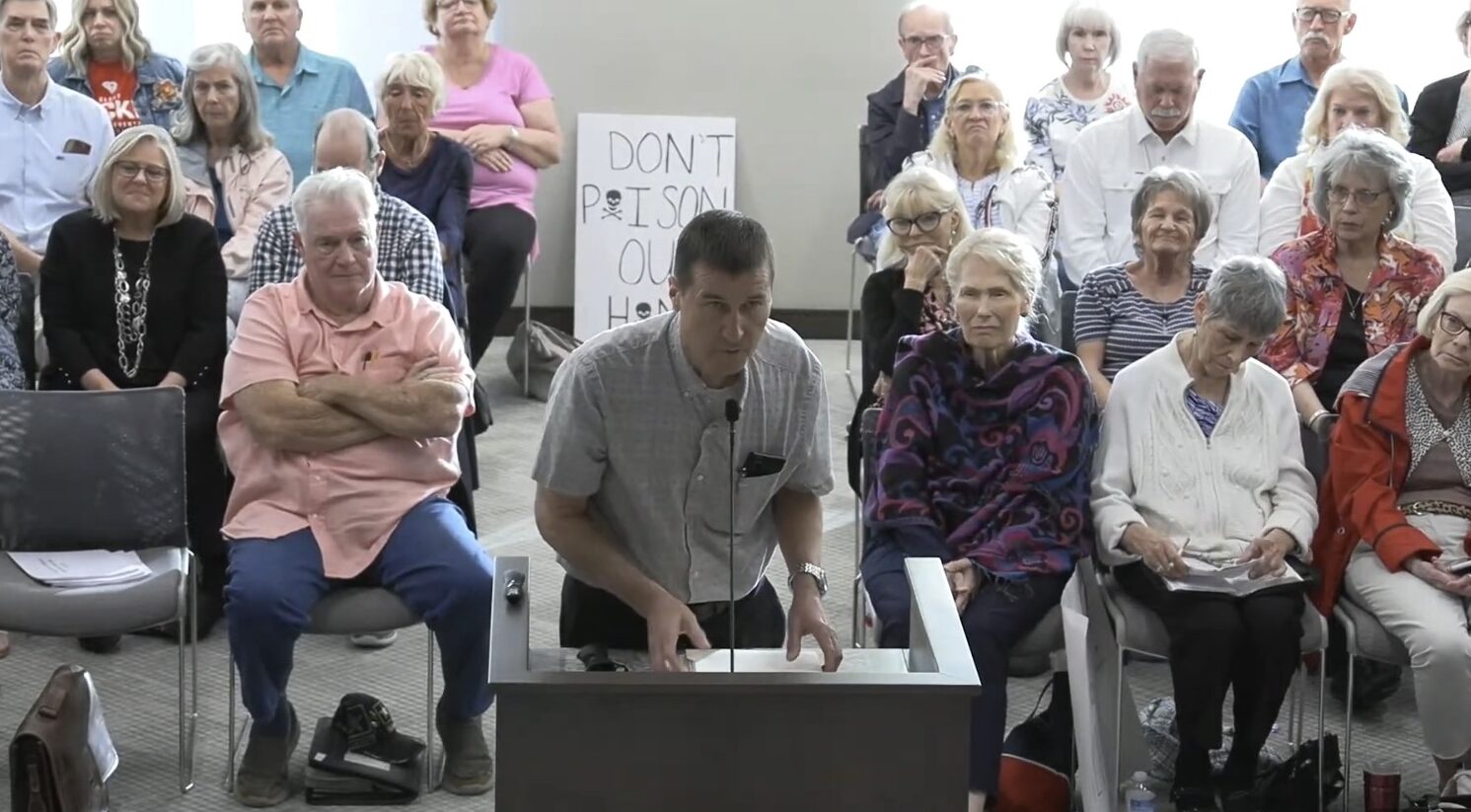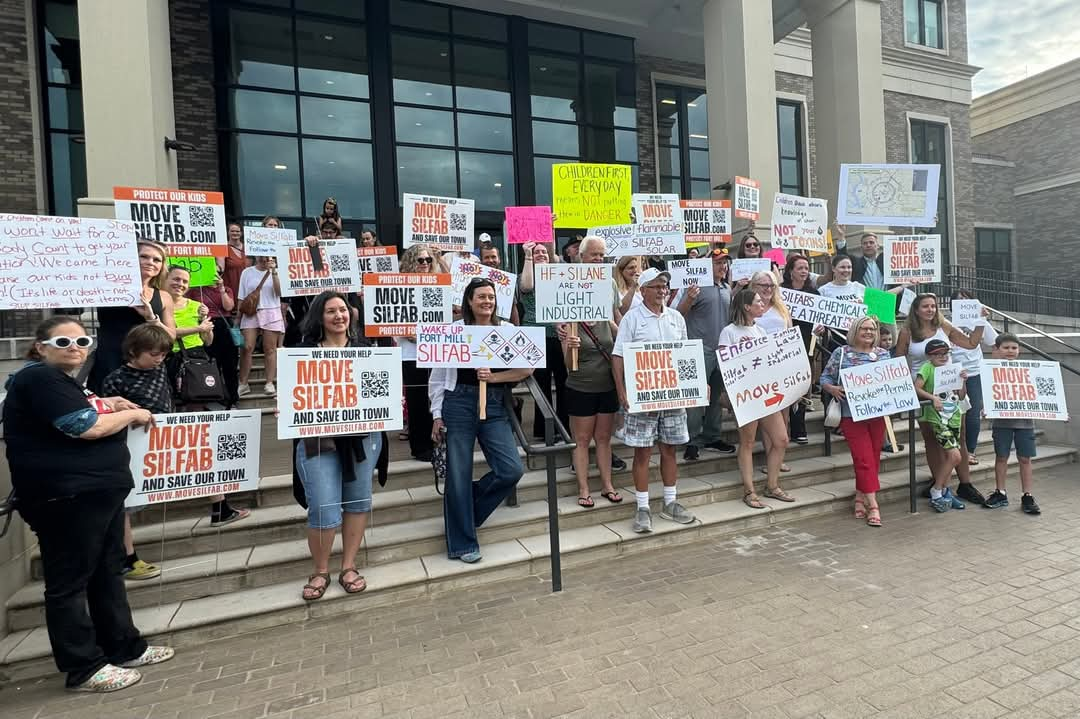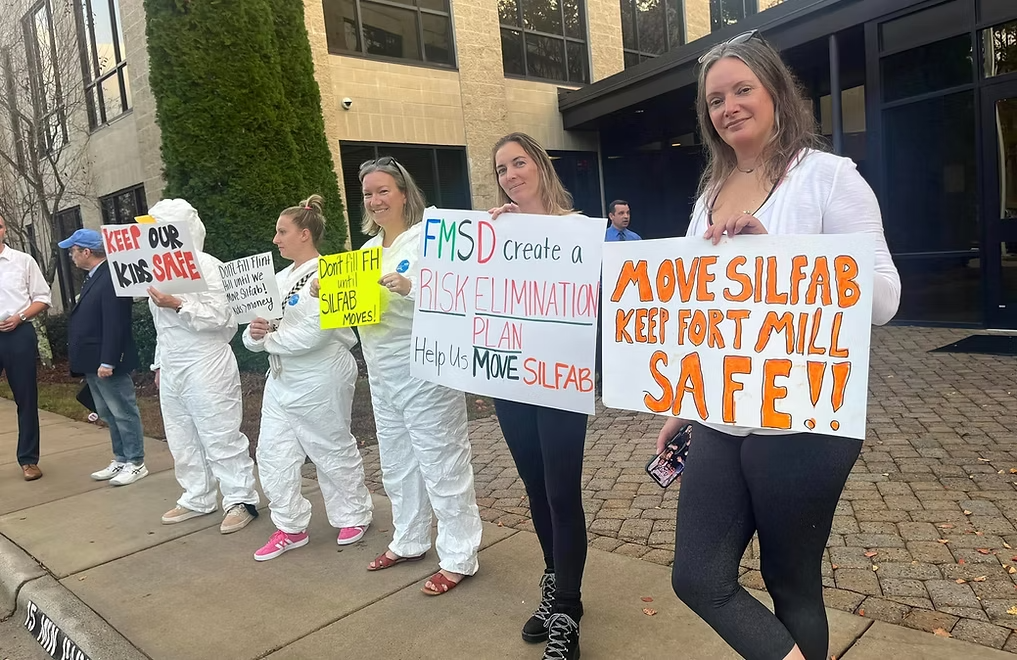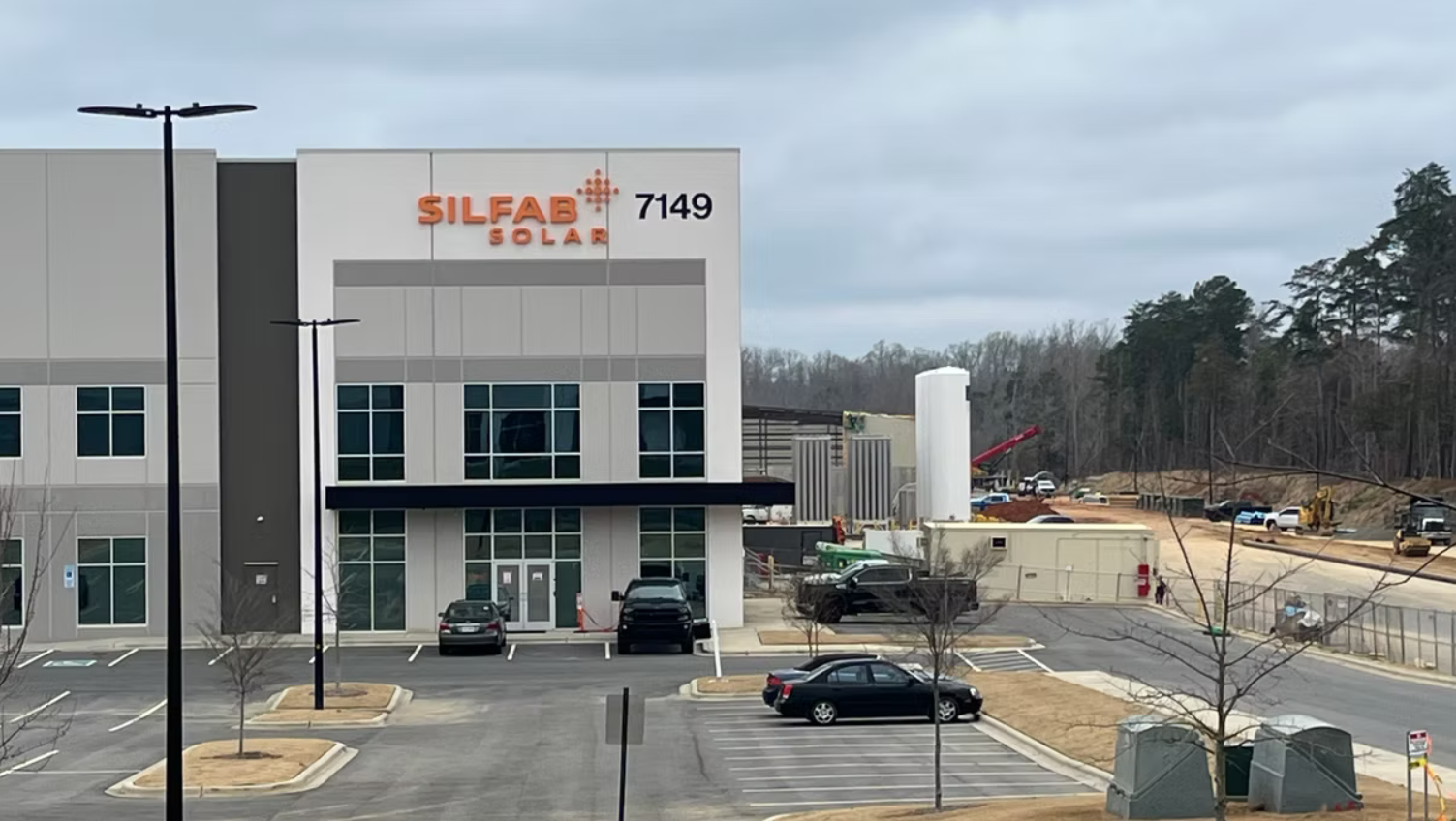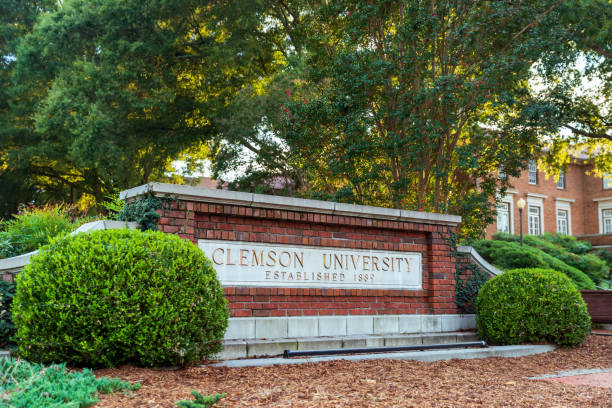-
The Deadline for Financial Accountability in South Carolina is March 7, 2026
|
Executive Summary After years of accusations, investigations and resignations regarding the accuracy of SC’s financial accountability reporting, a professional analysis was commissioned outlining specific actions by various state agencies to eliminate similar problems in the future. The date to complete these process improvements is March 7, 2026 The Investigation: What Happened with the 2022 Financial…
-
York County Management Needs to Correct the Record on Silfab
|
Citizens Alliance for Government Integrity President Andy Lytle speaks at the Board of Zoning Appeals Meeting on May 9, 2024. Written by John Lee, a Move Silfab contributor In June 2024, York County issued a public “Management Statement” assuring residents that concerns about the Silfab Solar facility were based on “misinformation,” and that the Board…
-
Why 7149 Logistics Lane in Fort Mill, SC?
|
Silfab Solar’s solar panel manufacturing facility is located next to two schools at 7149 Logistics Lane in Fort Mill, SC. Why did Silfab do this? Written by Timothy J. Hegarty, A Concerned Citizen of York County: There has always been a fundamental question lurking in the background of the Move Silfab campaign that has gone…
-
Ignoring South Carolina’s Zero-Based Budgeting Law: The Governor, the General Assembly and all State Agencies
|
As a kid, do you remember when your dad gave you an allowance and said, ‘This is all you are getting, so make it last’? A simple command to follow, and for the most part, you did as you were told. This rationale clearly does not apply to South Carolina’s treatment of its fiscal responsibilities.…
-
Development Rights in York County, SC? I think not…
|
Written by Timothy J. Hegarty, A Concerned Citizen of York County: As a concerned citizen, I have tracked the Silfab Solar issue very closely in the last two years since I first became aware of it. I think it is fair to say that I am very well acquainted with the specific details of this…
-
Student Safety, not #1 priority for Fort Mill School Board?
|
Written by Timothy J. Hegarty, A Concerned Citizen of York County: A very simple dictionary definition of “bias” is “an inclination or preference for or against an individual or group that interferes with impartial judgment “. Remember this statement, as it will relate to the story below. If you’ve read the previously posted “Damn the…
-
“Damn the Citizens, Full Speed Ahead!” in York County, SC
|
Written by Timothy J. Hegarty, A Concerned Citizen of York County: When Admiral David Farragut shouted, “Damn the Torpedoes, Full Speed Ahead!” at the Battle of Mobile Bay in August 1864, it was viewed as a bold, reckless statement in the face of overwhelming odds. Fast forward to today, and with slight editing, the statement…
-
Are Citizens’ Rights and the Law Taking a Back Seat in York County?
|
Photograph from CAGI History of the Issue Zoning issues have broad implications for the health and safety of nearby citizens. Silfab Solar is constructing a solar panel manufacturing plant in Fort Mill, South Carolina directly off Highway 21 near the I-77 interchange and surrounded by residential housing and adjacent to two public schools. The facility…
-
Why Does Public Interest Litigation Take So Long?
|
Written by: Eamon Flynn, Second Year Student at the University of South Carolina Joseph F. Rice School of Law It is no secret that the American legal system is slow. A harm is suffered, a complaint is filed and responded to, discovery is conducted, and parties file motions, all before a trial is conducted. Then,…
-
Can South Carolina’s Courts Change Clemson’s Board of Trustees?
|
Written by: Laird Minor, Eamon Flynn The Lawsuit A suit was brought against Clemson University over its “life trustees” serving on their board of trustees. NOLAS Trading Co. and John Sloan, taking over from his father, Ned Sloan, brought suit against Clemson over these trustees. Plaintiffs argued that these trustees violated the South Carolina Constitution…

